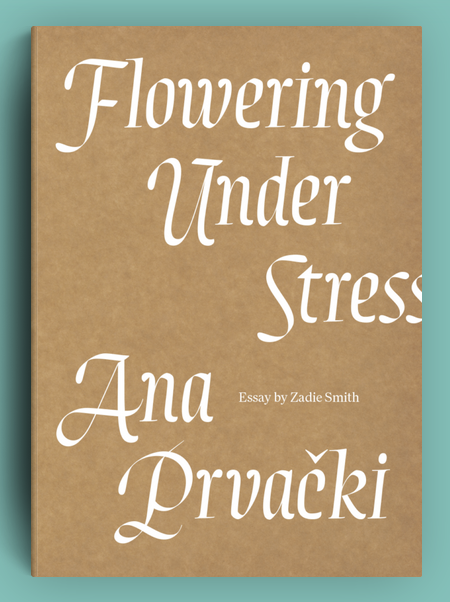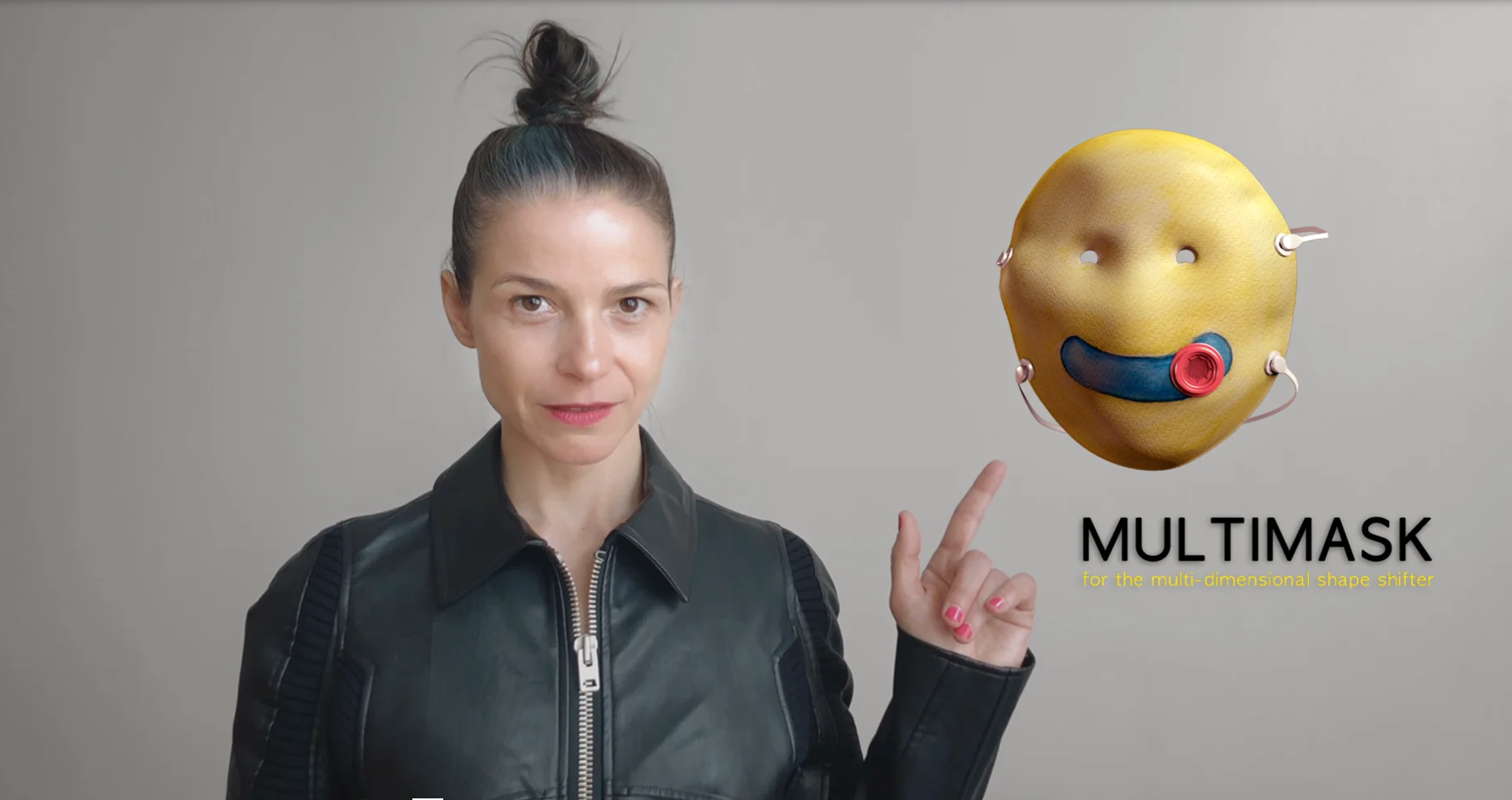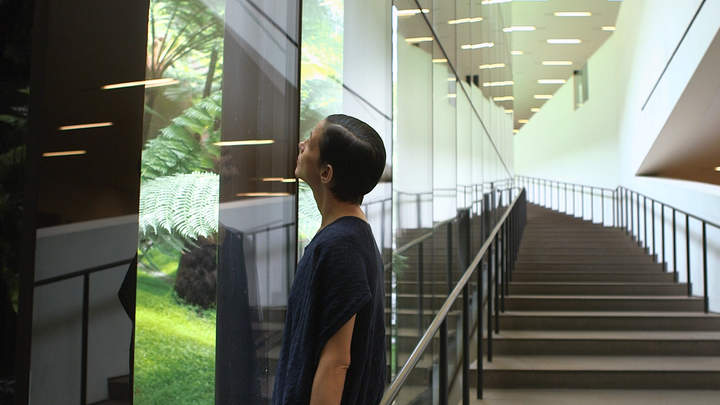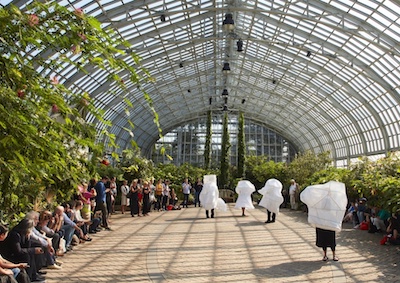I’ve always been fascinated by artists employing humor in times of crisis. Surrealists and Dadaists, for instance, turned to absurdist humor during the war and postwar years; their creative audacity helped us to recognize collective trauma and inertia. At the start of the pandemic last year, following a major cultural mood swing, many artists and performers had to ask themselves whether the use of humor was still appropriate.
I watched artist Ana Prvački boldly facing our shared fear with a trilogy of video works (which was presented virtually as part of the 2020 Gwangju Biennale) just as COVID-19 began to grip the globe and the death toll was rising. Prvački released three wry videos over the course of several months, offering coping strategies for our bleak and awkward new social reality. Titled Multimask, Energetic Tickle, and The Splash Zone, they are poetic ruminations on anxiety and wellness.
A conceptual and performance artist, Prvački was born in Serbia and raised in Singapore. After living in Spain and the US, she currently works from Berlin, Germany. She is innately connected to Eastern European avant-garde history, including Fluxus and conceptual performance (she occasionally collaborates with Marina Abramović). Most of Prvački’s work confronts behavioral conventions, such as social and gender etiquette, and proposes ways to improve mental, emotional, and physical wellbeing. She researches these topics with utmost seriousness but delivers her findings with a twinkle in her eye, and sometimes tongue in cheek. Her background in theater, music, and architecture, as well as beekeeping and traditional masked acting, brings a singular edge to Prvački’s practice; her humor is subtle, even elusive, and is often laced with the erotic.
Prvački’s Pandemic Trilogy takes us into a near future. Balancing sincerity and absurdity, she uses the sonorous inflections of her speaking voice and meticulously calibrated expressions of her eyes to guide us: “You do not need to look human, just friendly.” Multimask, the first in the trilogy (released in May 2020), employs 3-D rendering for an all-over face mask that, in Prvački’s words, “reimagines quarantine and isolation as a time for renewal, personal growth, consciousness, and beauty while providing a safe way to interact with others in a social environment.” The emoji-like face with beady eyes provides an experience of slight sensory deprivation—because how much more input can we bear?—and encourages internal reflection and self-study. The video operates between a public service announcement, an infomercial, and a beauty tutorial, and is so convincing that a number of people thought the mask was an actual product that could be ordered online.
For many of us who are not essential workers, the lockdown has brought a sense of isolation and a hyperawareness of our inner lives. For Prvački, our current collective anxiety sharpened her work’s focus on enduring social concerns. In a prescient performance from 2007, titled At the Tips of Your Fingertips, the artist methodically, and enthusiastically, cleaned one-dollar bills with what she called “money-laundering wet wipes.” A witty nod to the germ-ridden symbol of capitalist interconnectivity, this work sailed to the top of my mind as soon as the pandemic hit.
In Energetic Tickle, the trilogy’s second video, Prvački instructs the viewer on how to overcome the “energetic, emotional, and physiological implications” of social distancing. To the sound of an accordion, Prvacˇki calmly enacts a new way of greeting our fellow humans with the help of sensed energy flowing from and to the fingertips. Choreographed like a dance, the work puts non-touch to the test: Can it indeed reach us and titillate?
The Splash Zone, the final work in the trilogy, is a poetic vignette that imagines a future, unexplained climate event. Prvački enacts a personal encounter, merging outer and inner life within “a space of both creativity and anxiety, analog and digital,” referred to by the artist as “the supralittoral zone.” Concerned with spiritual more than physical care, this piece poses the idea of humans having a porous relationship with water, our survival requiring an entirely transformed collective experience.
Might the heightening of the provocative and the absurd be a way out of our worrying minds? Can art’s liminal space—and in Prvački’s case, somatic space—be not an escape route but a proposed, valid solution during times of darkness and social duress? In her Pandemic Trilogy, Prvački meets us, much like a benevolent extraterrestrial, with cheery yet grave euphemisms to remind us that we have gone astray.


















